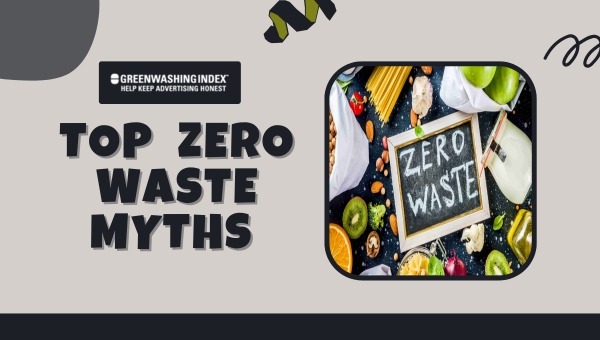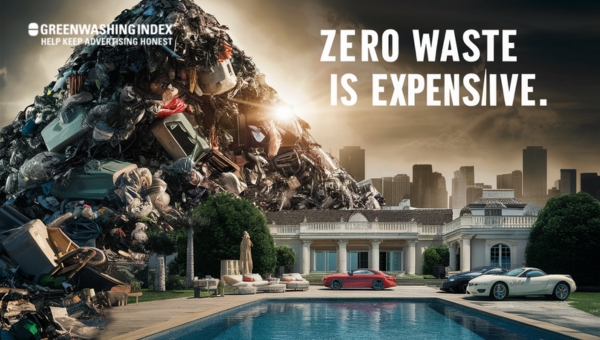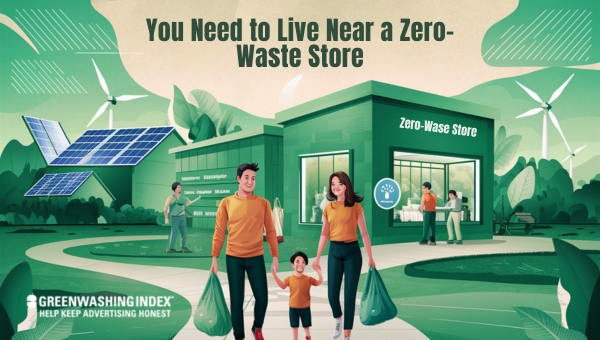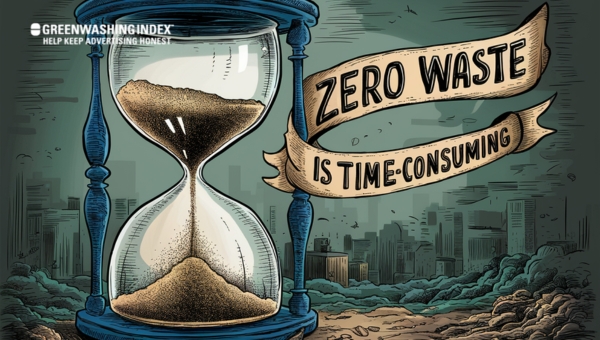

You’re sitting at your kitchen table, coffee in hand, pondering how to make a difference in the world. You’ve heard the buzz about reducing waste, yet confusion clouds your mind.
Zero Waste Myths swirl around, leaving you curious and eager to unravel the truth. Is it really that challenging? Will it break the bank? As we delve into these myths, let’s uncover the reality behind the zero waste lifestyle. It’s not just for the eco-warriors out there. Anyone can embrace it and make impactful changes.
Zero waste is a holistic approach that focuses on reducing waste through mindful production, consumption, and reuse of materials. Unlike traditional waste management, which often leads to disposal, zero waste emphasizes treating discarded items as valuable resources. This movement encourages the redesign of products and systems to prevent waste at its source.

By aiming to divert at least 90% of waste from landfills, zero waste supports a circular economy, prioritizing sustainability and resource conservation. Ultimately, it fosters healthier communities by minimizing environmental impacts and encouraging innovative solutions in various industries.
The zero waste movement emphasizes minimizing waste and adopting sustainable practices to protect the environment. However, various misconceptions can hinder individuals from embracing this lifestyle. Understanding these myths is crucial for fostering a more realistic approach to zero waste living. Below are the top ten myths about zero waste, each debunked to clarify what this lifestyle truly entails.
One of the most pervasive myths about zero waste is the belief that it requires individuals to generate absolutely no waste. This notion can be intimidating and lead many to dismiss the concept entirely. In reality, zero waste is not about achieving perfection; it is about striving to minimize waste as much as possible.
The goal is to reduce non-recyclable and non-compostable waste that ends up in landfills, rather than eliminating all waste altogether. This journey involves making conscious choices in daily life, such as opting for reusable products, composting organic materials, and supporting businesses that prioritize sustainability.
By focusing on gradual improvements and small changes, individuals can significantly reduce their environmental impact without the pressure of achieving “zero” waste.
Another common misconception is that adopting a zero waste lifestyle is prohibitively expensive. While some eco-friendly products may have a higher upfront cost, they often lead to long-term savings. For instance, investing in reusable bags, stainless steel containers, and cloth napkins can eliminate the need for single-use items, ultimately saving money over time.

Additionally, by reducing consumption and focusing on quality over quantity, individuals can cut down on unnecessary purchases and wasteful packaging costs. Furthermore, many zero waste practices—like composting and bulk buying—can actually lower overall expenses by minimizing waste disposal fees and reducing reliance on packaged goods.
Many people believe that living a zero waste lifestyle is inconvenient and requires significant lifestyle changes. However, with proper planning and organization, integrating zero waste practices into daily routines can be quite manageable. Simple actions like carrying a reusable bag or choosing products with minimal packaging can seamlessly fit into everyday life.
Additionally, many communities now offer recycling and composting programs that make it easier to participate in sustainable practices. Over time, these habits become second nature, making the transition feel less burdensome and more rewarding.
The idea that zero waste living is reserved for minimalists or environmental extremists is misleading. In truth, anyone can adopt zero waste principles at their own pace. This lifestyle encourages incremental changes rather than an all-or-nothing approach. Small actions—such as reducing plastic use or advocating for sustainable practices among friends—can collectively lead to significant impacts.
The essence of zero waste lies in progress rather than perfection; every effort counts towards creating a more sustainable future.
A common myth suggests that access to specialized zero-waste stores is essential for adopting this lifestyle. While these stores provide package-free goods, they are not the only option available.

Many local grocery stores offer bulk sections where customers can bring their containers for refills, and online shopping has made eco-friendly products widely accessible. Individuals can find numerous sustainable alternatives without needing to rely solely on specialty shops.
Some believe that recycling alone will solve our waste crisis; however, this perspective neglects the reality of our current recycling rates. Less than 20% of waste generated globally is recycled each year, with much still ending up in landfills or the environment.
Zero waste emphasizes preventing waste generation at its source through conscious consumption choices rather than relying on recycling as a catch-all solution. This approach encourages reusing materials and redesigning products to minimize overall waste production.
Another misconception is that zero waste initiatives are solely individual pursuits; in reality, businesses play a critical role in this movement as well. Companies significantly contribute to overall waste production through packaging and supply chain practices.
By adopting zero-waste strategies—such as designing durable products and minimizing packaging—businesses can help drive systemic change towards sustainability. Government policies also play a vital role in encouraging businesses to prioritize eco-friendly practices.
The belief that one must achieve complete perfection in their zero-waste efforts can deter people from trying at all. However, the truth is that every small step towards reducing waste matters.
The journey toward a more sustainable lifestyle is ongoing; even minor adjustments can lead to meaningful change over time. Embracing an imperfect approach allows individuals to learn from their experiences while contributing positively to environmental conservation.
Many people assume that transitioning to a zero-waste lifestyle requires excessive time and effort; however, this isn’t necessarily true. While it may take some initial planning—such as researching sustainable alternatives or establishing new habits—these changes often become part of one’s routine over time.

As individuals adapt their lifestyles towards sustainability, they may find that these practices streamline their daily activities rather than complicate them.
Lastly, some think that zero waste living focuses exclusively on eliminating plastic use. While reducing plastic consumption is crucial due to its environmental impact, zero waste encompasses a broader range of issues related to resource conservation and sustainable living practices.
It involves examining all aspects of consumption—such as food packaging, textiles, and electronics—and making informed choices that prioritize sustainability across various materials.
By debunking these myths surrounding the zero waste movement, we can foster a more inclusive understanding of sustainable living that encourages participation from everyone willing to make a positive impact on our planet.
Zero Waste Myths is crucial for anyone looking to reduce their environmental impact. By debunking these myths, we can make informed decisions and adopt sustainable practices that are both practical and impactful.
Zero waste isn’t about perfection; it’s about making conscious choices that contribute to a healthier planet. Every small effort counts, and by dispelling misconceptions, we empower ourselves and others to strive for a more sustainable future.
If you’re eager to learn more about sustainable living and environmental tips, explore more of our insightful blogs. Let’s journey together towards a greener, cleaner world!
